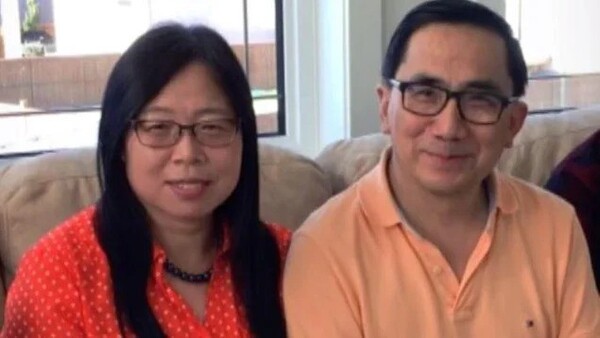渥太华政府掩盖邱香果卧底真相 伤及加国顶级实验室科学家(观点)

华裔科学家邱香果博士因其在埃博拉研究方面的杰出贡献而赢得了同行的赞誉和尊重。然而,这两位在加拿大顶级微生物实验室工作的华裔加拿大科学家因被指控与中国政府秘密合作关系而成为温尼伯实验室的丑闻焦点人物。加拿大安全情报服务的报告指控称这两名科学家夫妇旨意为中国政府利益向其传递机密科学信息,但加拿大政府却为掩盖温尼伯实验室出现的重大安全漏洞而一直不肯公开安全情报局的调查结果,从而使得关于这两位科学家的机密行动多年来得以隐瞒,因而令其同行、科学界乃至加国公众被这对夫妇的谎言迷惑,对其真实身份以及其给加国研究领域造成的伤害和影响无从知晓。
Dr. Qiu Xiangguo's renowned contributions to Ebola research have earned her accolades and respect from peers and colleagues. However, this Chinese Canadian scientist, employed by Canada's highest security level lab, was implicated in alleged covert affiliations with the Chinese government, as a CSIS report claimed she intentionally worked to the benefit of her home country's authorities. The Canadian government's reluctance to release the CSIS documents, allegedly to conceal a significant security breach at the Winnipeg lab, has obscured the truth about the scientists' clandestine activities for years, leaving her fellow virologists, the broader scientific community, and the Canadian public puzzled over the duo's real allegiances and its implications for Canada's economic security.
根据加拿大安全情报服务(CSIS)的报告,邱博士及其丈夫被指利用其在加拿大的顶级实验室中的职位而为提高中国在高危病原体方面的研究成果而卖力效劳。报告称,他们在未经允许情况下将实验室内关键的研究结果和资源信息向中国泄露,并对如此行动会给加拿大造成的利益损失和后果毫不顾忌。具体说来,邱香果被指未授权而将埃博拉病毒的基因序列向中国泄露,从而促使中国注册了研究专利,她也堂而皇之地成为了专利发明家。这项中国获得的专利提升了中国在病毒学和遗传工程研究成果以及其在全球健康和生物技术领域的地位。邱香果博士还被指加入涉嫌间谍活动的中国“千人计划“项目,该项目拟于2018至2022年间为她提供120万加元的研究经费。此外,她还被控与中国军事医学科学院的魏晨将军有染,因而涉嫌参与中国军方的间谍活动和向其非法转移知识产权。邱博士夫妇于2019年7月份遭实验室解雇。
According to the CSIS report, Dr. Qiu and her husband exploited their positions at Canada's Level 4 lab to notably enhance China's ability to research highly-pathogenic pathogens. They allegedly shared vital scientific knowledge and resources without authorization while overlooking the consequences for Canadian interests. Dr. Qiu inappropriately shared the Ebola genetic sequence with Beijing, a move that subsequently led to a patent being registered in her name. The act of transferring critical lab information to China could significantly bolster the country's research in virology and genetic engineering, enhancing its global health and biotechnological stature. Dr. Qiu also allegedly joined China's Thousand Talents Program, which is under suspicion of espionage activities, for a deal promising her $1.2 million in funding from 2018 to 2022. Additionally, her association with Gen. Wei Chen from the Academy of Military Medical Sciences raises concerns about espionage and the improper transfer of intellectual property to the Chinese military. The lab dismissed Dr. Qiu and her husband in July, 2019.
在加拿大安全情报局(CSIS)报告指出实验室的重大安全漏洞和加拿大知识产权遭泄密后,特鲁多政府选择掩盖CSIS报告内容以及解雇邱博士夫妇的原因。这种掩盖行为使得那些曾对作为一位成就卓越的科学家抱有崇敬之心的邱的同事们对其遭解雇倍感震惊,认为对他们所采取的行动太为过激,并对中国的干预行动和邱夫妇的真实身份一无所知。很多人感到对温尼伯实验室出现的重大的安全违规一说无法接受,因而倾向于接受邱的辩解和说辞,将事件视为由被过分夸大的行政错误进而演变成重大的政治争议。有些同事认为她是秘密特工的想法荒谬至极,一位在2022年接受《麦克林》杂志采访的同僚称:“我可不认为邱博士是一名卧底。”
Upon discovering a major security breach and the loss of Canadian intellectual property, as reported by CSIS, the Trudeau government opted against revealing the CSIS findings and reasons behind the couples’ dismissal. The coverup efforts left Dr. Qiu's lab colleagues in shock and skepticism about the drastic actions taken against them, all while keeping them unaware of China's interference in the lab. Despite esteeming her as an accomplished scientist, they remained in the dark. Struggling to reconcile the idea of a significant breach in such a secure facility, some leaned towards accepting Dr. Qiu's denials, perceiving the incident as an administrative error blown out of proportion into a major political controversy. Some colleagues even found the notion of her being a covert operative absurd, with one colleague telling Macleans in 2022: "I never got the impression she was a sleeper agent.”
曾在2016年前担任NML实验室特殊病原体研究部负责人的加里·科宾格博士,也曾为邱辩护并相信邱的无辜。对加国政府遮遮掩掩的做法倍感失望的他曾在2021年接受CBC采访时表达了内心的不满:“皇家骑警对实验室的调查已进入第三年,而公共卫生署尚未与加拿大议会提交任何调查结果……这对我来说简直是前所未闻的。”
Dr. Gary Kobinger, head of the NML's special pathogens until 2016 had also defended Qiu and believed her innocence. He felt let down by the government’s lack of transparency, expressing his frustrations in his interview with CBC in 2021: “We are in the third year of RCMP’s investigation, and the PHAC has not shared its findings with the parliament of Canada… This is something unheard of to me.”
这份曝光了使邱名誉扫地之行为内幕的文件的迟迟公开,无疑会使那些对其科学家同僚持有绝对信念的邱的同事们更为惊愕和不满。政府的隐瞒行动无疑会给这个加国顶级研究实验室带来更大的动荡不安,并动摇了那些支持科学创新的加国人士对政府研究机构的信任。更进一步说,它会使加国研究机构在国际社会中的形象受损,给加拿大研究领域的投资以及加国参与全球科学合作造成障碍。
The belated disclosure of documents depicting a notable scientist's downfall is likely to amplify feelings of dismay and betrayal among Qiu’s colleagues, who had an overriding faith in the good intentions of other scientists. The government's concealing actions have inadvertently compounded the distress within the research lab and significantly undermined the trust of Canadians who support scientific innovation. Furthermore, this veil of secrecy could foster doubts among international allies, potentially disrupting financial investments in Canadian research and hindering the nation's participation in global scientific collaborations.




